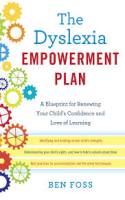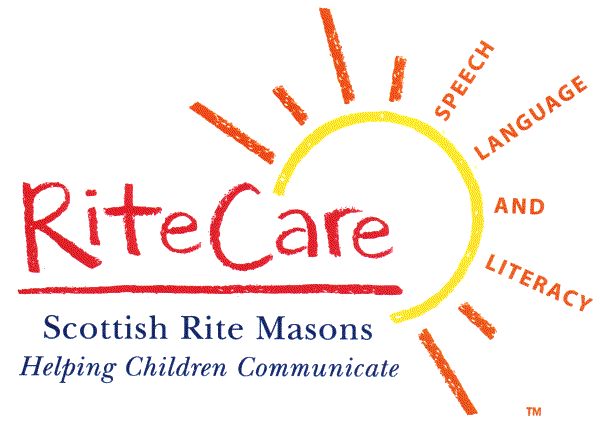Dyslexia Reading Well Blog
The Dyslexia Reading Well Blog brings you the latest information available at our website and around the dyslexia world from research breakthroughs to exciting new books or products. Subscribe to our RSS feed by clicking on the orange button above the navigation links.
Mar 18, 2015
Scottish Rite Dyslexia Reading Programs
The Scottish Rite dyslexia reading programs help children with dyslexia for free at over 170 locations in the U.S. and Canada
Jan 27, 2015
Dyslexia Teaching Resources
Professional dyslexia teaching resources for use in the classroom or home.
Dec 23, 2014
Lindamood Bell Learning Processes
Lindamood Bell is a commonly used reading program for dyslexic students. Learn about its method, content and whether it actually works.
Dec 18, 2014
Dyslexia Glasses
Dyslexia glasses, also known as colour tinted lenses have been known to help some dyslexics. Learn the facts about this controversial treatment.
Dec 02, 2014
Response to Intervention as a Method for Dyslexia Remediation
Response to intervention is being used by more and more schools as their approach for helping students with dyslexia. Learn more.
Continue reading "Response to Intervention as a Method for Dyslexia Remediation"
Nov 06, 2014
Dyslexia Treatment
Successful dyslexia treatment requires special teaching techniques and content that are based on evidence based research.
Oct 31, 2014
Phonemic Awareness
Phonemic awareness is the strongest predictor of future reading ability. Learn the phonemic skills dyslexic students need.
Jul 17, 2014
5 things a Dyslexic Student Should Not Do This Summer

The Dawg Daze of summer 2014 are here and I hope everyone is enjoying some well earned down time with family. While I am a strong advocate of not over-programming the summer and letting kids be kids there is also a risk of losing hard won skills and confidence from the previous winter. So with that in mind, here are five things a dyslexic student should not do this summer:
1) Don't stop learning
Encourage your kids to learn a little bit every day. The key is to find activities that don't feel like work: Practice times tables in the car, play Scrabble, keep a holiday journal, read a cereal box, listen to an audio book, or make words from license plates on the road trip. Just be mindful of learning opportunities because they are everywhere.
2) Don't abandon routines
Summer school and tutoring routines may take care of themselves for the lucky (unlucky?) ones, but for the most part you will have to schedule a regular time for some learning. Just before bed is ideal for reading together or making a few notes in a summer journal.
3) Don't lose confidence
This is not about reading or writing confidence. I mean confidence period. This summer be sure your kids get to do things they enjoy and do well. Biking, swimming, golfing, whatever it is. And be sure to praise them for what they do well. Don't fall into the trap of thinking "they know they are a good soccer player so I don't have to say it." Remind them how proud you are!
Can video games boost confidence? Of course. Many games allow kids to establish online identities and characters that they take great pride in. Just be sure to monitor online activity. Best way for you to help manage the Minecraft? Play it! Contrary to what you might think, kids love it when you take an interest in their games.
4) Don't over schedule
Let your kids enjoy some down time. Wall to wall camps and summer school leave no time for lazy bike riding, lemonade stands, or hanging out with friends. School is demanding for dyslexic students. They need some summer decompression. And remember Sea World may be fun but it is not necessarily relaxing.
5) Don't be surprised when September arrives
Summer seems about 10x longer for your kids than for you as a parent, but it always ends the same way: "I can't believe September is here!"
Since dyslexics need to be organized right from the get go, you can't afford to be caught totally off guard come September 1. Make a point this week to organize a binder complete with tabs for every subject, spend some time with a speech to text app, buy new gym sneakers or order some pencil grips.
For the first time you and your kids can now look forward to saying "I believe September is here!"
Jul 09, 2014
Special Education Law
Know your rights under U.S. special education law to ensure that your dyslexic child gets the support they need.
May 05, 2014
You Don't Know From Dyslexia
The Dyslexia Reading Well Review of the Dyslexia Debate by Julian Elliott and Elena Grigorenko, Cambridge University Press, 2014

Fast forward ten years and Elliot has now teamed up with Elena Grigorenko of Yale University to pitch the same message in their newly released book The Dyslexia Debate, published by Cambridge University Press. Elliot's nuanced arguments regarding terminology vanish again in the book's media attention, which always plays to the idea that dyslexia may not be real. Seduced into this role the authors have forgotten that the casual consumer of The Dyslexia Debate, like the 'Dyslexia Myth' viewer before them, can only come to the misunderstanding that biologically based reading problems are a myth.
In terms of the actual content of the new book,there is a lot of interesting material to explore. I previously deconstructed the five myths of the research brief the authors released prior to the book and have now updated that response. I won't revisit my critique of those issues here, except to note that in the context of the book, the arguments against dyslexia are secondary to an earnest and thorough review of the science on reading disabilities.
It is unfortunate that the authors framed their book as a debate on the term dyslexia, because they have otherwise written what I believe is the world's finest literature review of dyslexia research, exploring the daunting complexity of reading difficulty and its sobering intractability to intervention. The sections on cognitive and neurobiological bases of reading difficulty are a very informative read. Any reader of the these middle chapters will come away with a greatly enriched understanding of the history and current state of research on reading disability. Sadly my gratitude for that literature review will be as forever lost in this book review as the authors intentions to help struggling readers will be in their book.
UK readers can buy The Dyslexia Debate here
Canadian readers here
US readers here
Mar 26, 2014
Our Response to The Dyslexia Debate J. Elliott and E.Grigorenko
In The Dyslexia Debate, Julian Elliott and Elena Grigorenko claim that the term dyslexia deceives parents and hurts children. This is our response.
Continue reading "Our Response to The Dyslexia Debate J. Elliott and E.Grigorenko"
Mar 05, 2014
Multisensory Learning and Teaching for Dyslexic Students
Understand multisensory learning and the teaching techniques behind it. Integrating auditory, visual, tactile and kinesthetic learning makes a difference.
Continue reading "Multisensory Learning and Teaching for Dyslexic Students"
Feb 09, 2014
Assistive Technology for Dyslexia
The latest assistive technology for dyslexia can make a world of difference for your child or student.
Jan 28, 2014
Dyslexia Winter Vortex Update. Blog #005
The last couple months have seen some exciting developments on the site.
1) We have launched a section on assistive technology, which more and more I think is critical for every parent and teacher to experiment with. The tools are just too powerful to ignore.
BTW, at home, we have taken the plunge on an iPad Air and are experimenting with a number of applications including iWordQ which is a great word processor for dyslexics and is already a homework hit.
2) We have changed the look and feel of the site considerably including a new header - hope you like it! The site still needs many improvements, but it's a step in the right direction.
3) I have added a few Google ads, which I know detract from the content but they allow us to keep the site free and accessible. I hope you understand. Google chooses the ads, but I can veto any advertiser. If you see any objectionable ad, let me know and I will review it. I've already screened out many unsuitable advertisers.
4) We have significantly increased the number of pages on schools that target dyslexic students and continue to build more. Private schools are expensive, but they can be very effective and we think the more information available the better.
5) In the spirit of one global Dyslexia Nation I continue to try to make the site valuable for visitors from the UK, US and Canada. It's an intimidating task because each country is a unique little ecosystem of terminology, standards, laws and practices around dyslexia. My learning curve is steep, but it's also a rewarding task as I get to connect and learn from interesting and caring people from Hawaii to Scotland.
Take care during these cold winter months, winter can be a depressing time, especially for those experiencing the second round of the 'polar vortex' like us in Ottawa. Get outside into the winter sun when you can. Spring/golf is not too far away now.
M
Jan 07, 2014
Apps for Dyslexia
An explosion of apps for dyslexia is opening new doors for students and adults alike. Reading, writing and notetaking have never been easier!
Jan 07, 2014
Assistive Technology
With today's assistive technology, those with dyslexia can read and learn like never before.
Dec 06, 2013
Carol Greider Dyslexia
A Nobel prize winner with dyslexia, Carol Greider once thought she was stupid because reading and spelling were so difficult.
Nov 27, 2013
Decoding Dyslexia
Decoding Dyslexia is a fast growing network of parents and professionals advocating for greater awareness and accommodation for dyslexia in public schools.
Nov 15, 2013
Dyslexia Font and Styles
A review of which dyslexia font, styles, colors and word presentations are actually best for the dyslexic reader.
Nov 04, 2013
Packed House for Dyslexia in Toronto. Blog #004

From the keynote "Inattention, Dyslexia and Anxiety" presented by Dr. Eric Tridas, President of the International Dyslexia Association:
* The combination of dyslexia, anxiety and ADHD is a 'perfect storm' for impairing all kinds of development not just reading. They are not school problems, they are life long challenges.
* Effective reading programs need the four I's: Informed method, Informed instructor, appropriate Intensity, and Involved administrators.
* Dyslexics and those with attention deficits need to taught process more than content - i.e taught how to learn.
* Books he recommended: Anita Archer's Explicit Instruction; Russell Barkley's Taking Charge of ADHD, Thomas Phelan's 1-2-3 Magic and Ross Greene's The Explosive Child. The latter two books are for parents dealing with behavioural issues.
I haven't reviewed these books and can't vouch for them, but Tridas is among the most knowledge persons I've met when it comes to dyslexia.
An afternoon session on the use of the IPAD put on by Toronto's Dana Sahian opened my eyes to some potentially great apps for dyslexics: Calengoo, a great calendar app, Notability for note taking, iWordQ for reading and writing, Educreation's Interactive Whiteboard and Inspiration Maps for brainstorming were among the most impressive.
For more details on using assistive tech for reading, writing, learning or communication, check out Dana's Site
I'll see if I can get all the PowerPoint slides from the conference presentations and post on the site.
Final Thought: I wasn't sure it was going to be worth the trip to Toronto for this conference but the content, community and contacts were amazing and I strongly encourage you as parent or teacher to take in these kinds of events, it will give you new ideas, friends and hope.
Michael
Oct 14, 2013
Book Review: The Dyslexia Empowerment Plan, by Ben Foss - Blog Entry #003

Holder of JD and MBA degrees, the inventor of the Intel Reader for Text to Speech, and the Founder of a non-profit for dyslexia called Headstrong Nation, Ben Foss is certainly accomplished, especially given a reading ability in the bottom 15% of the general population. But in his new book, The Dyslexia Empowerment Plan from Random House, he's aiming for something much bigger: changing the very way we think about reading and literacy.
Recent dyslexia tomes, including Overcoming Dyslexia by the field's high priestess Sally Shaywitz have overlooked an important truth that Foss illuminates: Reading is one route to literacy and learning, but it is not the only route.
Advances in text to speech technology have now made "ear-reading", previously known as listening, a realistic path to literacy and academic success for millions of dyslexics who struggle with "eye-reading". For ear-reading, think Audio books and instant text to speech for any document, anywhere, anytime.
By introducing two simple adjectives, Foss has thrown down a challenge to every mainstream eye-reading program on the planet. Though not articulated in his book, or anywhere outside this review that I have read (by ear or eye), this idea is a serious threat to a multi-billion dollar reading industry built on the idea that weak eye readers simply must become strong eye readers.
For Foss, embracing your dyslexia means recognizing that, beyond a point, there are diminishing returns for eye reading. As early as the late elementary years, dyslexic students should be turning to tech more than text; to Intel and Apple rather than Wilson, Barton, Linda-Mood Bell, Slingerland or the long list of otherwise very good Orton-Gillingham eye-reading systems.
Just as Braille opened the world of the blind to books over 180 years ago, audio books and text to speech hardware and software applications carried in our pockets are game changers for dyslexics today. Foss knows this because he lived it, listening his way to prestigious scholarships and Ivy League degrees. Eye reading alone would have failed him.
There is much more to the book than just the use of technology. For Foss, empowerment is also about focusing on strengths not weaknesses, learning to talk about your dyslexia, asserting your rights, working for change not conformity and building community and sense of belonging. But it's his redefining of literacy that stands out as the real game changer for dyslexics.
Michael
For an illustration of ear reading, check out my interview with Ben
Oct 09, 2013
Dyslexia Awareness Month - Blog Entry #002
It's Dyslexia Awareness Month
October is the perfect time to raise awareness: Kids have been in school for a month and many parents and teachers are just now waking up to the reality of reading problems in the classroom and at the kitchen table. Act now! Check out the ongoings by following the link at the end of this blog entry.
For our part we will be holding our official launch on October 14, which is the start of Dyslexia Awareness Week in Canada and the UK - a Commonwealth thing I suppose. On that day we will release an exclusive interview with Ben Foss about his new book The Dyslexia Empowerment Plan: A Blueprint for Renewing Your Child's Confidence and Love of Learning.
It's a great book and he has some really interesting comments about things like slow trip trauma and the need to move beyond a focus on 'eye reading'. It was my first time as interviewer so I was no Pierce Morgan, but I think you'll enjoy it, Ben is an eloquent and passionate advocate for dyslexia and has what I think are some game changing ideas.
Also for the launch, we are hosting a Video Challenge encouraging you, our visitor to submit a one minute video describing how you or someone you know has been empowered to thrive with dyslexia. Starting on the 14th, we will showcase one video each day or two on the homepage. I Look forward to hearing your stories!
Our local Heritage Academy school, specifically for students with dyslexia, ADD/ADHD and similar learning disabilities, suggested the challenge in support of Dyslexia Awareness Week and is encouraging their students to participate. I'm really excited about working with the school and hope this is the first of many such collaborations, because there is so much creative potential among the students and administration for making a difference. Hats off to Heritage Academy and their Vice Principal Derek Rhodenizer.
Site Update
We now have a Facebook page at https://www.facebook.com/dyslexiareadingwell to help us build a social community online as well as here on the site; hope you will check it out and add contribute to the ongoings. Twitter to follow.
Homefront
We're starting to find the rhythm of our new school. There are many more details and deadlines to juggle from musical instruments to textbooks to calendars which is always tough for a dyslexic, but my stepson is managing very well so far. Importantly the school is finally providing additional support in the classroom including a laptop as part of his IEP program. Will be interesting to see how that helps. Hmmm, maybe I can have him do a future blog entry.
I'm also trying to encourage more use of text to speech and speech to text at home, but with little success so far. Still I'm realizing just how important technology is for dyslexics and I need to say more about that on the site soon.
Good Luck and Good Reading,
Michael
Continue reading "Dyslexia Awareness Month - Blog Entry #002"
Oct 08, 2013
Dyslexia and ADHD
Why do dyslexia and ADHD seem to go together? Explore why almost half of all people with dyslexia also have ADHD; plus the latest research and treatment.
Sep 04, 2013
Winds of September - Blog Entry #001
Welcome to the Dyslexia Reading Well Blog.
My name is Michael Bates and I am the author of the Dyslexia Reading Well. The site first went live on June 3rd, 2013 and while the official launch will not take place until Dyslexia Awareness Week in October (14-20th), September feels like the right month for kicking off the blog.
I hope for the blog to serve three ends: First as a place to share some of our household trials and triumphs with dyslexia, something I know every parent that visits the site will understand. Second to update you on the newest pages of information on our site and the latest news about all things dyslexia, whether it's a book, interesting research article, inspiring poem or new IPhone application for reading text. Finally I hope it will spark some dialogue with you, inspiring you to share your own stories, ideas, frustrations and successes. Dyslexia is a long, hard road, it's good to have company.
News from the home front:
Grade 7 started yesterday for my stepson with the usual mix of delight and dread, welcome and worry that a new school and school year brings. Of course the angst of this rite of passage is double for him because making new friends and finding new classrooms is only half as scary as a new teacher uttering the words" "please complete this form" or "please read the first paragraph out loud". I never realized how easy my first days of school were until I saw through his eyes.
But he came through just fine, successfully navigating through the first two days. We'll keep taking them one at a time.
News from the WebSite:
While the site remains rough, the essential pages are now in place and a trickle of traffic has started to arrive, which is very encouraging. My focus for the moment is rolling out a full and current list of dyslexia tutoring centres for Canada, the US and UK, something many parents will discover they need very soon.
After that it will be the directory of dyslexia assessors, although I'm struggling with that list at the moment, having discovered that there really are very few dyslexia testing specialists. Therefore for most people "dyslexia assessor"="psychologist". This is fine until you realize that most psychologists know little about dyslexia.
For now check out the updated Types of Dyslexia page and the links there and watch for more Success Story pages, which seem to be popular ones.
Cheers,
Michael
Aug 29, 2013
Deep Dyslexia
Understand deep dyslexia, its symptoms and causes and how it differs from other types of dyslexia
- Home ›
- Dyslexia Blog
















New! Comments
Share your thoughts or ideas! Leave us a comment in the box below. You can post it at this site only or on Facebook too, it's up to you.